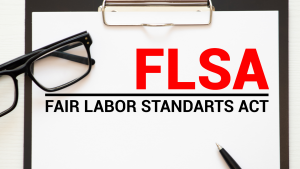By Jesse S. Grasty, Esq.
This month, the United States Supreme Court announced that it will address whether an employee who earned over $200,000 per year via a daily rate, as opposed to a weekly salary, is still eligible for overtime pay under the Fair Labor Standards Act (“FLSA”).
Under the FLSA, employees must be paid one and half times their regular hourly rate for all hours worked over 40 in a week, unless they are exempt. In order to be exempt from overtime pay under the FLSA, employees must meet certain tests regarding their job duties and must be paid a minimum weekly salary (currently, $684 per week). Where an employee is highly compensated (currently, at least $107,432 annually) the job duties requirement is more easily satisfied, however, the salary basis requirement remains.
Under the regulations, an employee is paid on a salary basis if they receive a predetermined amount on a weekly (or less frequent) basis, which cannot be reduced due to fluctuations in the quality or quantity of the employee’s work.
In Hewitt v. Helix Energy Sols. Group, Inc., the plaintiff was employed on an offshore oil rig. There was no dispute that his job duties were consistent with those of an exempt employee. There was also no question that his compensation exceeded the minimum threshold to be exempt – his daily rate of over $900, was far more than the FLSA’s weekly floor ($455 at the time). Indeed, his annual compensation was nearly twice as much as the FLSA standard for highly compensated employees.
However, plaintiff was not paid a weekly salary. His compensation fluctuated from week-to-week based on how many days he worked in a given week. And, he was not paid an overtime premium when he exceeded 40 hours in a given week. As a result, plaintiff filed a lawsuit alleging he was owed overtime pay under the FLSA.
In September 2021, the United States Court of Appeals for the Fifth Circuit ruled that plaintiff was indeed entitled to overtime. The Fifth Circuit explained that “plain text of the regulations is decisive” – plaintiff was not paid a weekly salary that did not fluctuate based on the quality or quantity of his work.
The Fifth Circuit also pointed out the Sixth and Eighth Circuits had made similar findings, and maintained that the majority of federal district courts had issued similar rulings.
However, in conjunction with Helix Energy’s appeal of the Fifth Circuit’s decision, the attorneys general from Alabama, Louisiana, Mississippi, Montana, Utah, and West Virginia filed amicus briefs arguing against the decision, as have numerous industry groups.
This is because this undeniably a hot-button issue that has potentially far-reaching implications for any employer or industry that utilizes a day rate. If the Supreme Court upholds the Fifth Circuit’s ruling, employers that utilize a day rate and do not pay overtime will face substantial liability, regardless of how well compensated their employees may be.
Please contact an NFC team member if you have any questions or seek further assistance.

